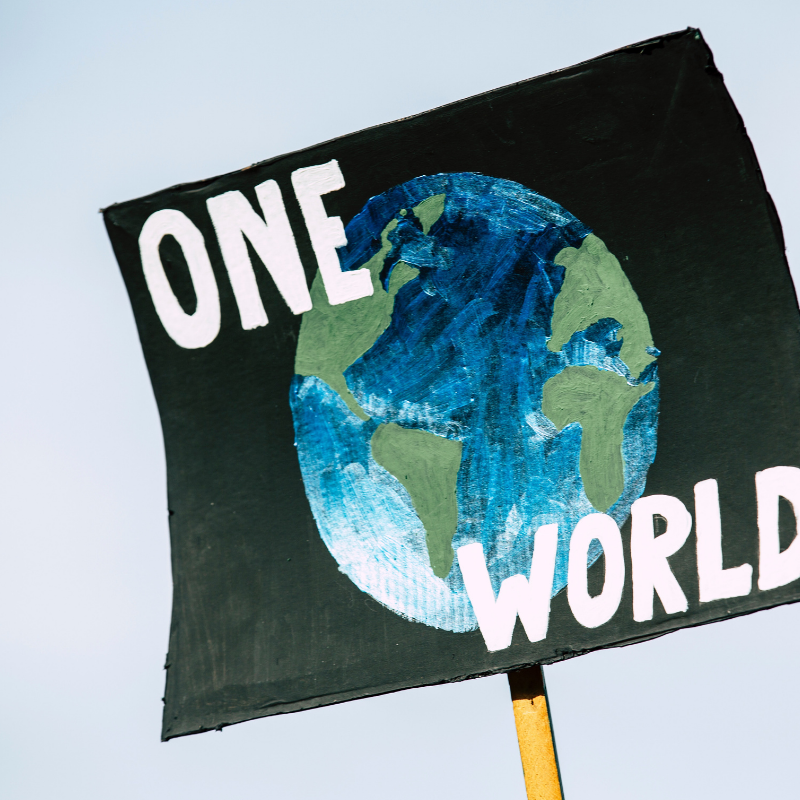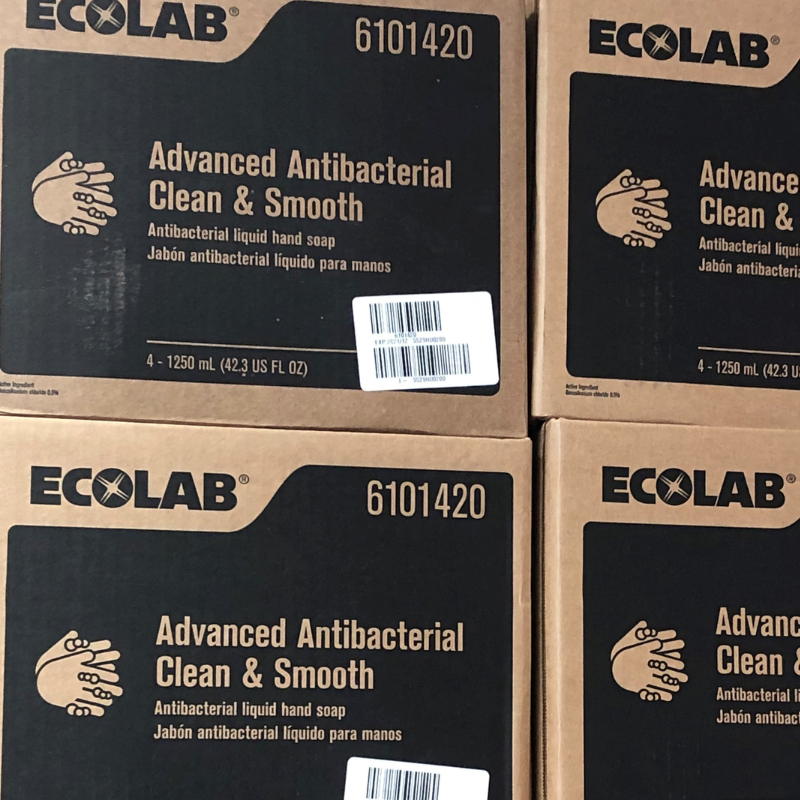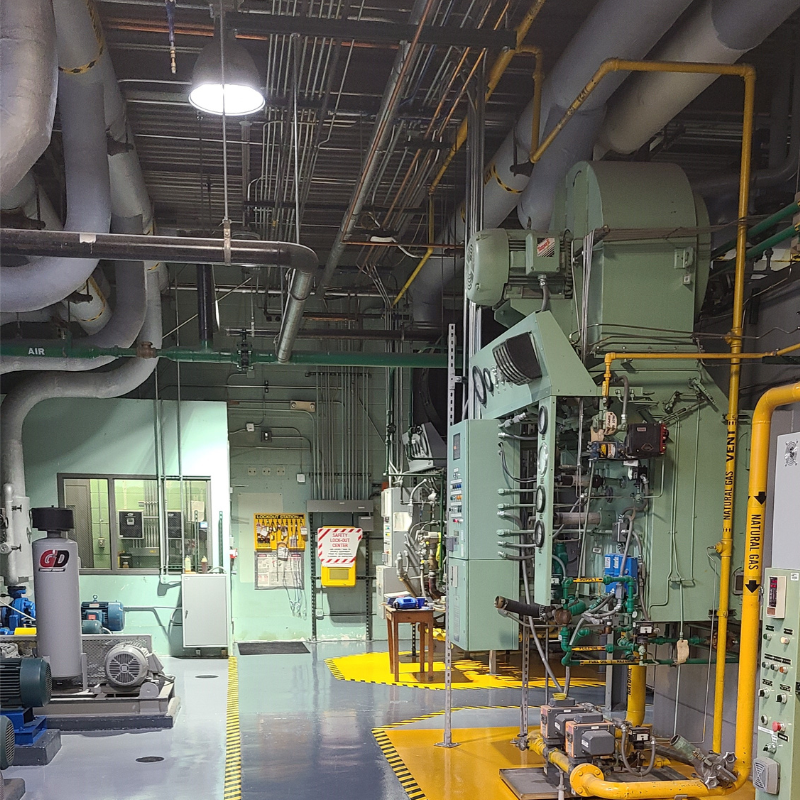Advancing the Sustainable Development Goals at CC with Sodexo
In Block 1, we wrote about why sustainability is more relevant now than ever, especially in the context of meeting our needs and the United Nations Sustainable Development Goals (SDGs). The work to achieve these goals is being advanced across CC and beyond. Our aim for these blockly communications is to highlight individuals and offices across campus that are doing sustainability work in this context and distinctly connect it to some of these goals. Throughout these stories, you may also notice other implied connections that aren't explicitly discussed; I would argue that we could connect these stories and this work to most or all 17 goals with a little thought and so I'm hopeful that we'll all more regularly think about and see those additional connections. I view highlighting those connections and providing thought exercises for our students to begin to inherently see them as one of our primary roles in the Office of Sustainability.
In that spirit, this block we're examining the role that our custodial services provider, Sodexo Environmental Services, is playing in advancing the SDGs at Colorado College.
Starting at the beginning, Sustainable Development Goal number 1 is No Poverty. That is, to "end poverty in all its forms everywhere." This is no small charge, but there has been distinct global progress towards this goal. In 2010, 15.7 percent of the global population lived in extreme poverty. By 2019, that number had decreased to 8.2 percent, although 2020 saw an additional 71 million people worldwide pushed into poverty due to COVID-19. One method to combat poverty is a living wage policy. Sodexo has worked with Colorado College to develop a living wage policy and pays their employees a living wage for an individual living in the Colorado Springs metropolitan area. Of course, paying a living wage has direct impacts on other SDGs, too: an employee earning an living wage has better access to healthy food (goal #2) which directly impacts health and well-being (goal #3), allows employees better access to a quality education (goal #4), reduces inequalities across the compensation spectrum (goal #10), and provides employees with decent work and productive employment (goal #8). In the context of meeting needs for a thriving human population, this relatively simple policy has far-reaching impacts.

The services Sodexo provides also impacts these and other goals in other ways. Since the beginning of the pandemic, a primary focus has been on cleaning and sanitation - providing safe spaces for our community to live, work, and learn. Often this work happens when we're not in those spaces and so we don't see it happening, but the extra attention given to the spaces we all come into contact with directly impacts everyone's health (goal #3).
Also impacting our collective health by reducing the use of hazardous chemicals is an effort that Sodexo has been focusing on since earlier this summer. Under the new leadership of Director Bronson Terry, Sodexo has worked to reduce their chemical inventory to more environmentally friendly chemicals used for routine cleaning and sanitation. "I have had an interest and passion for sustainability for a long time," says Terry, "and have seen first-hand how impactful simple, thoughtful decisions can be. Beginning early next year we will start working on recertifying to the ISSA CIMS green cleaning distinction." CIMS is the International Sanitary Supply Association's green cleaning program standard that is recognized by CC's sustainability reporting standards.

Prior to this summer, Sodexo had 140 chemicals in their campus warehouse. That number has been reduced to 12 routinely used chemicals and a recent tour of their warehouse exhibited a much more organized and simple stocking system of ultra-concentrated cleaning solutions that also reduce the amount of packaging and cost. Most of these chemicals are manufactured by EcoLab, a company headquartered in Minnesota with the vision to "be the global leader in water, hygiene, and antimicrobial technologies and services - providing and protecting what is vital: clean water, safe food, and healthy environments." This vision touches on additional SDGs as well: because most of the chemicals we use for cleaning end up in wastewater treatment systems and in our waterways, our use of chemicals directly affects water quality and pollution (goal #6).

Sodexo has recently begun collaborating with the Office of Sustainability to improve waste diversion on CC's campus. COVID-19 has created new challenges to these efforts that has required us - at least for now - to use single-use dining and to-go containers, cups, flatware, etc. However, the two offices see this as an opportunity to reexamine old programs and develop new standard operating procedures for how to best dispose of the three main waste streams on campus - landfill, recycling, and compost - and rethink what it means to be responsible consumers (goal #12). According to Westly Joseph '21, the zero-waste programming and outreach intern in the Office of Sustainability, the development of these standard operating procedures outlines what gets disposed of where, the responsibilities and expectations of Sodexo staff, and the responsibilities and expectations of the Office of Sustainability. "One way you can help with this effort," says Joseph, "is to always look at the signage on the bin and think before you toss!"

Sustainability work and progress is happening across campus in ways that you've probably recognized, as well as in ways you haven't likely thought of before. 2020 is the year of carbon neutrality at CC, but on the heels of that success comes new challenges due to COVID-19 that directly impact how we'll meet our needs in a sustainable way. This has never been easy work, but we're heartened by the dialogues we're seeing and how the individuals, departments, and offices across the college are stepping up to this new challenge, building new partnerships to help achieve our goals (goal #17: Partnerships for the Goals).
Says Terry of this refocused partnership: "We will be strong proponents of the college recycling and compost program by training our staff on how to properly remove and dispose of each waste stream. It is important to be collaborative partners with Colorado College to improve our impact on the world."
By Ian Johnson
Special thanks to Bronson Terry, Brady Meek, and Westly Joseph '21





